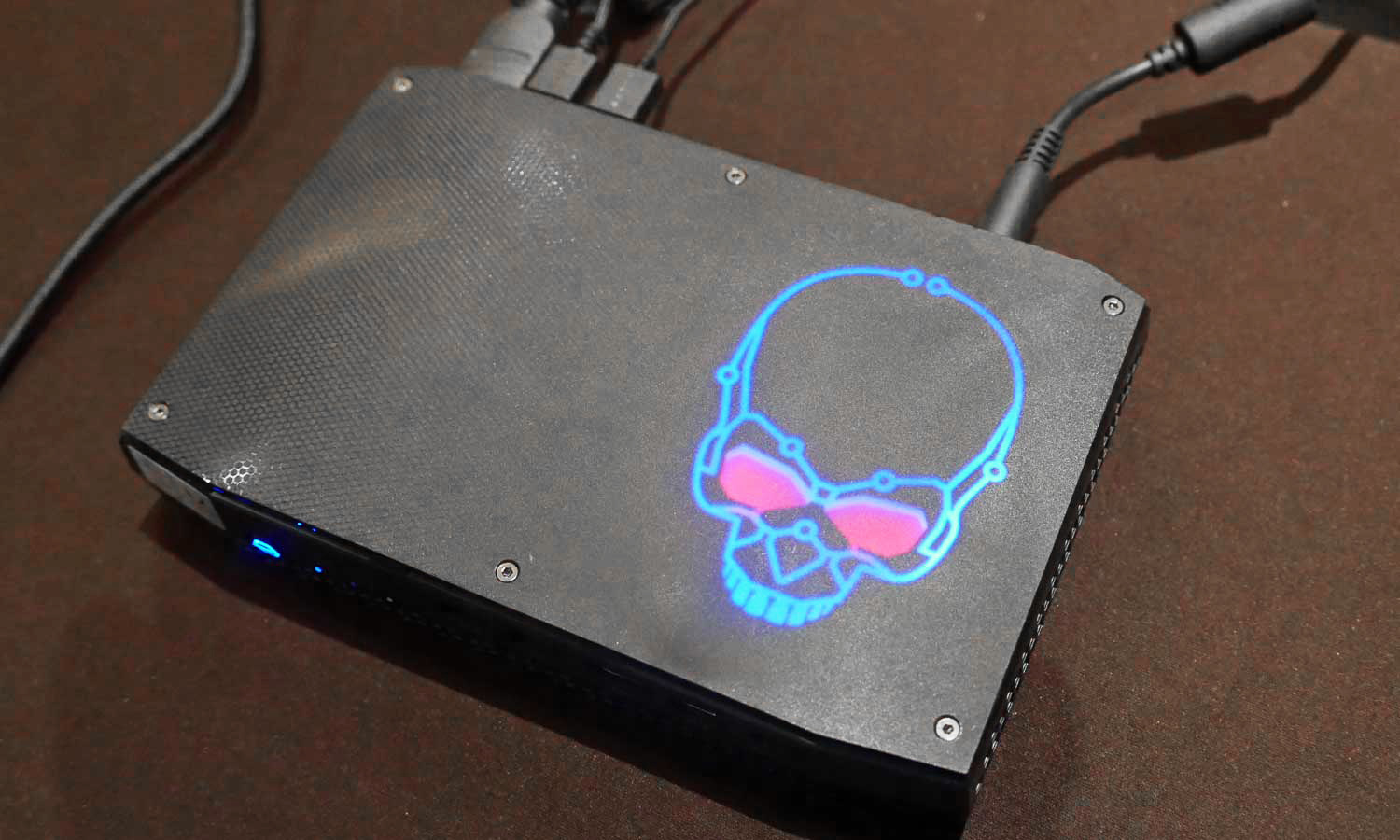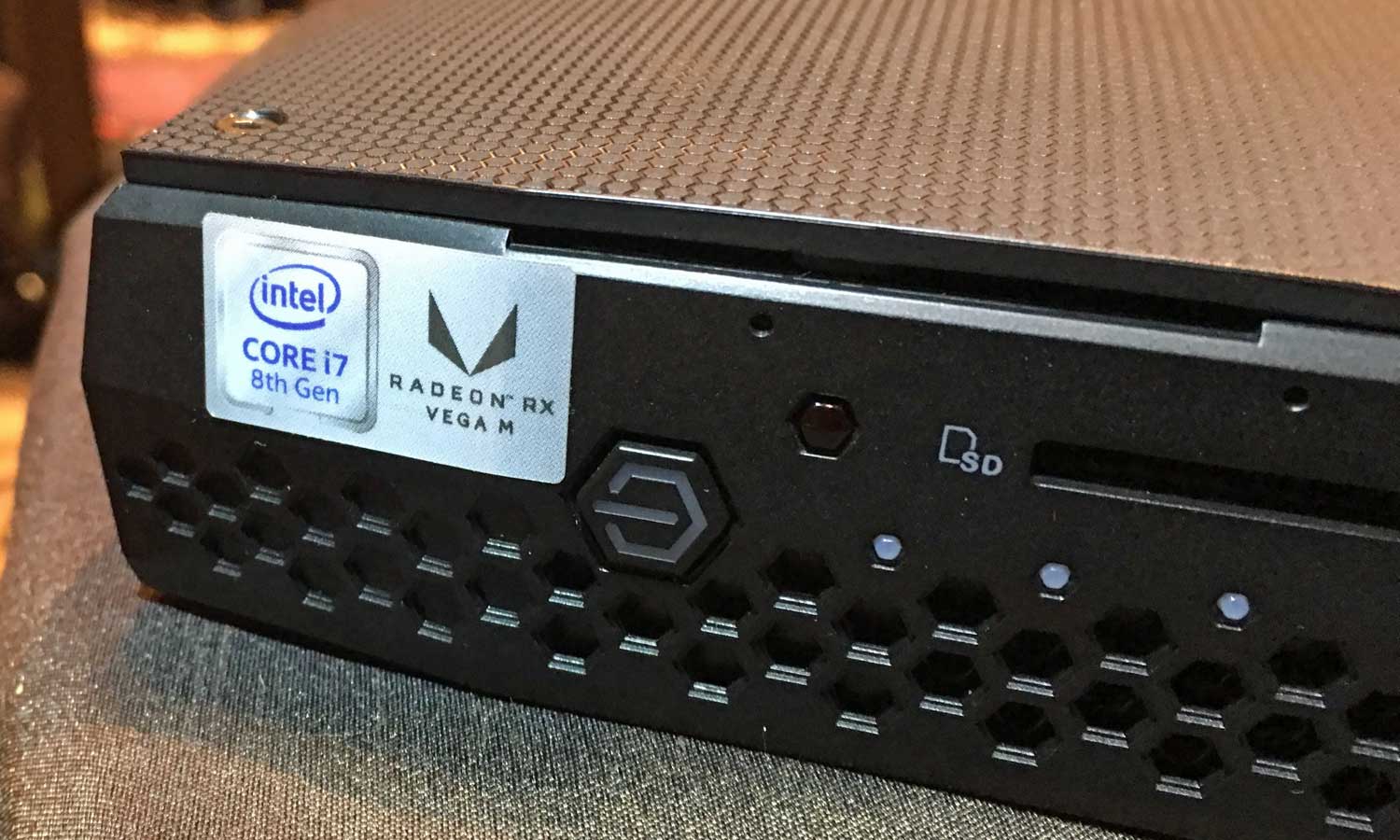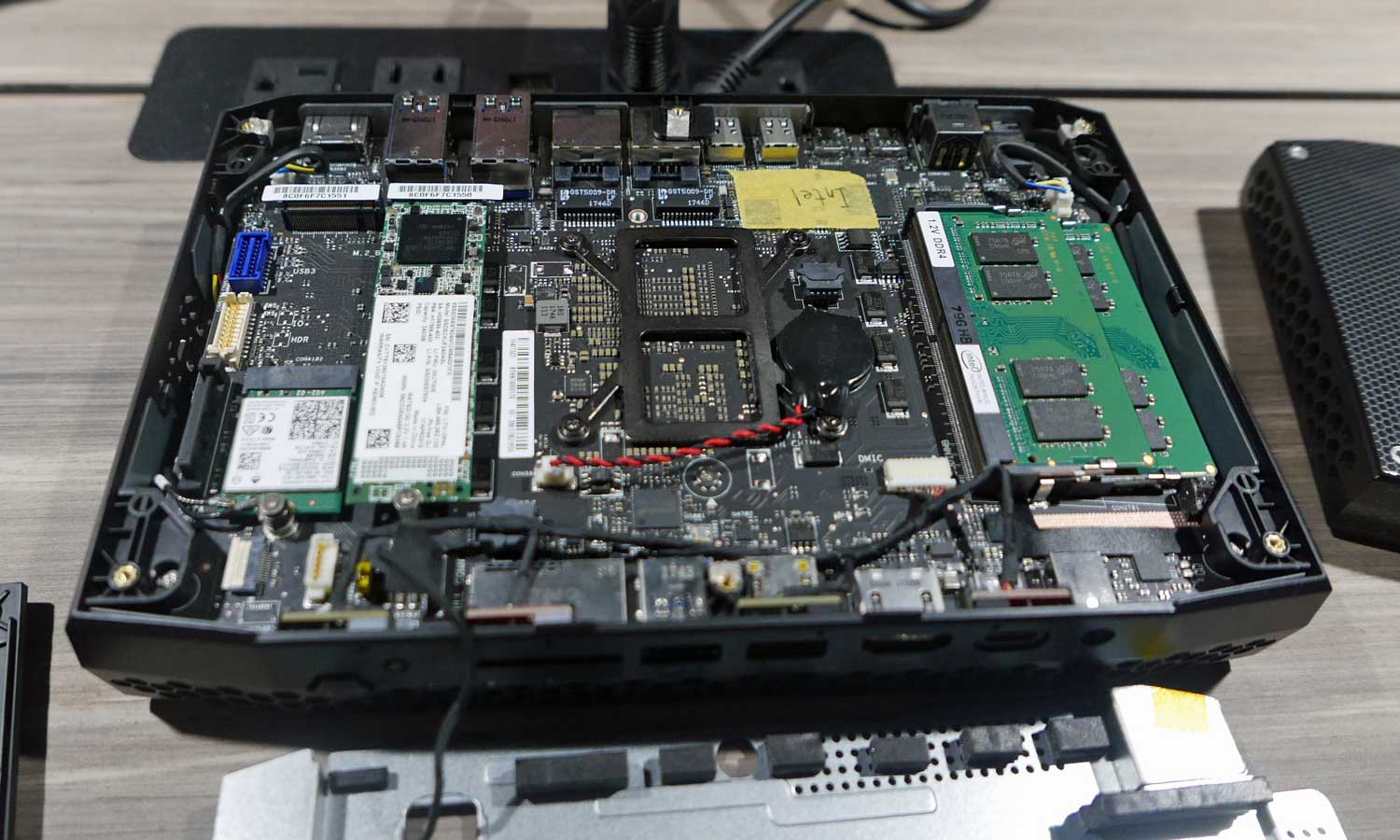Intel's New Mini PC Is a Pint-Sized VR Powerhouse
Intel's NUC 8 Enthusiast, aka Hades Canyon, is a pint-sized mini-PC capable of VR, thanks to 8th-Gen Core CPUs with Radeon Vega graphics.
LAS VEGAS — You don’t need a massive gaming rig for virtual reality anymore. Intel is taking advantage of its new 8th-Gen Core G series with integrated Radeon Vega GPUs to make a tiny computer capable of powering an Oculus Rift VR headset. The mini PC debuted at CES 2018 here Sunday (Jan. 7) and will be available this spring.
There are two variations. The NUC8i7HVK has an Intel Core i7-8809G CPU and Radeon RX Vega M GH graphics, and is capable of powering Windows Mixed Reality Ultra and the Rift. The NUC8i7HNK is powered by a Core i7-8075G CPU and Radeon RX Vega M GL graphics and can play less strenuous games and run Windows MR at lower settings.

| NUC8i7HVK | NUC8i7HNK | |
| Starting Price | $999 | $799 |
| CPU | Intel Core i7-8809G | Intel Core i7-8705G |
| GPU | Radeon RX Vega M GH graphics | Radeon RX Vega M GL graphics |
| RAM | Dual channel for up to 32GB | Dual channel for up to 32GB |
| Storage | PCIe NVMe or SATA | PCIe NVMe or SATA |
| CPU Unlocked | Yes | No |
| VR Ready | Yes | No |
| Size | 8.7 x 5.6 x 1.5 inches | 8.7 x 5.6 x 1.5 inches |
Intel will sell these machines as kits, so you’ll have to supply your own RAM and hard drive. But the result will a computer that can play games in VR weighing less than 3 pounds when fully configured.
Pricing will vary depending on the situation. The NUC8i7HVK will cost $999, while the NUC8i7HNK will cost $799. If you buy a fully configured system with RAM and a hard drive, it will likely go for a few hundred dollars more. The cheaper version will be released first, with the more expensive one coming out a few weeks later.

The top face of the new model, code-named Hades Canyon, has a striking blue skull pattern on it with glaring red eyes. (If this is a bit too edgy for you, it can be turned off. I personally prefer the plain look.)
The chassis has a ton of ports, including a pair of Thunderbolt 3 connectors, five USB 3.0 ports, two USB 2.0 ports and USB Type-C. For video, there are dual mini DisplayPorts and twin HDMI outputs. While there’s wireless AC Wi-Fi on the mini PC, it also has a pair of Ethernet ports for connectivity. There’s also an SD card reader on the front.
The inside will feature a large cooper cooling chamber that covers the CPU, which Intel's John Deatherage tells me is a major innovation at this size. The case also has several fans, but Deatherage didn't tell me just how cool the machine will run.
Get instant access to breaking news, the hottest reviews, great deals and helpful tips.

What took me aback was the size of the mini PC. While it’s not large for a VR-ready PC (or any desktop), for that matter, it is noticeably larger than Skull Canyon, the last-generation Intel enthusiast mini PC, which ended up being better for work than play. Still, I’ll take that extra bulk in exchange for the vast number of ports.
I wasn’t allowed to see the inside of the mini PC in my brief hands-on, so time will tell just how customizable it is inside.
Credit: Andrew E. Freedman/Tom's Guide
Andrew E. Freedman is an editor at Tom's Hardware focusing on laptops, desktops and gaming as well as keeping up with the latest news. He holds a M.S. in Journalism (Digital Media) from Columbia University. A lover of all things gaming and tech, his previous work has shown up in Kotaku, PCMag, Complex, Tom's Guide and Laptop Mag among others.
 Club Benefits
Club Benefits






